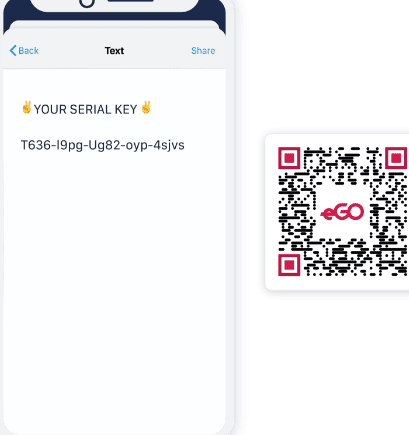Unlocking the full potential of QR codes means understanding the difference between Static and Dynamic QR Codes. Static QR Codes are like a tattoo; once it’s there, it’s permanent. They’re best for information that doesn’t change frequently or at all, could be business information, a link to a website or an app. On the other hand, Dynamic QR Codes are the chameleons of the QR world. They adapt to a change in marketing strategy or campaign and provide real-time analytics for businesses smart enough to use them.
Also, keep in mind that even though Static QR Codes are permanent, they can still expire. So, it’s crucial to double-check that they remain valid even after some time. Choosing between Static and Dynamic QR codes means customizing what your business needs to stay ahead in the game. Happiness is when your QR Code is scannable and achieves its goal.
Understanding QR Codes: An Overview
QR codes, or Quick Response codes, are matrix codes that were first introduced to the market in 1994. They were created by a Japanese automotive company, Denso Wave, to track vehicles during manufacturing. Since then, QR codes have gained popularity and are widely used in various fields such as marketing and advertising. The best part about QR codes is that they can be scanned quickly, which makes them an efficient method of sharing information.
Static QR Code: Decoding the Concept
A Static QR Code is a type of QR code that is encoded with data once and cannot be altered later. Once the code is generated, the information within it cannot be changed, meaning that it’s a permanent information storage solution.
Static QR codes rely on a “fixed” encoding of information, meaning that the information is stored within the code and cannot be altered, so it’s useful for situations where the information doesn’t change regularly or needs to be retrieved many times. When scanned, static QR codes direct users to a specific landing page or information.
Is Your Information Permanent or Temporary with QR Codes?
When it comes to QR codes, the type you choose largely depends on your business needs, and whether you want the information that you store in the code to be permanent or temporary.
For certain applications, the data stored in the QR code could be something that is essential and must remain permanent, such as directions to a physical address or contact information for a business. In these cases, a static QR code would be the best option because it is permanent- data cannot be changed once it has been stored.
On the other hand, temporary QR codes are useful when you don’t want to keep information in the code long-term, like seasonal coupons or one-time event information. Temporary QR codes can be scheduled to expire or only work during a specified time window, which can give added control over the information being shared.
How Permanent QR Codes Can Help Your Business
If you’re looking to create brand awareness and share long-term information, Static QR Codes can be a great addition to your marketing strategy. Here are a few ways that permanent codes can boost your business:
Long-term strategy: with a Static QR Code, you can share your company website or physical address, ensuring that your customers have easy access to your information through the long-term stability of the code.
Brand continuity: By featuring a permanent QR code on all of your business materials (brochures, business cards, flyers), you can achieve brand continuity and create better recognition for your brand.
Efficient Information Sharing: By storing permanent information on a Static QR Code, you can efficiently provide customers with contact information, including phone numbers, email addresses, and websites, without them having to manually copy your information.
Temporary QR Codes: When To Use Them
Temporary QR Codes have a specific use and benefit in various types of businesses. Here are a few examples:
Event marketing: If your company is holding an event or launching a new product, you can create a temporary QR code to share the details of the event, including venues and other relevant information.
Seasonal promotions: Seasonal promotional events are perfect examples of when it’s best to use a temporary QR code. With the ability to set expiration dates, you don’t have to worry about customers trying to use outdated promotions.
Contests and giveaways: Many businesses use QR Codes to promote contests and giveaways. As these promotions are temporary, some use a code that expires by a specific date.
Deciding Whether Permanent or Temporary QR Codes Are Right for You
When deciding whether to use Static or Temp QR Codes keep in mind that there is no one-size-fits-all solution; it all comes down to your business needs. It is crucial to think about your goals and what kind of information you want to share. If the information is something that changes frequently or won’t be relevant in the long-term, a temporary QR Code may be the best long-term solution. In contrast, if you have information that will not change over time, permanent QR codes are the way to go. Whatever path you choose, QR Codes can be an essential tool to share relevant information with your users quickly.





